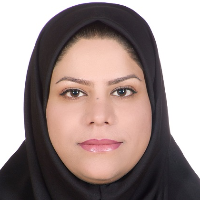Predicting educational performance of faculty members Based on intelligent leadership model
Universities are among the social systems that are known as the driving force of awareness, commanding and guiding the thoughts of societies. The purpose of this study was to determine the effect of intelligent leadership on the educational performance of faculty members of public universities in Zahedan, Iran.
This research in terms of applied purpose and implementation is a descriptive correlation study based on the structural equation model. The statistical population included all faculty members of public universities in Zahedan, 666 people, whose sample size was estimated to be 120 people based on Cochran's formula by stratified random sampling. Intelligent leadership and educational performance questionnaires (designed by the Office of Supervision and Evaluation of Universities) were used to collect research data. Content validity was confirmed by experts, structural validity was calculated through factor analysis, and reliability was also calculated using Cronbach's alpha coefficient equal to 0.97 and 0.93. SPSS23 and Smart PLS statistical software were used to analyze the data.
According to the research findings, intelligent leadership with a path coefficient (0.33) affects educational performance and the component of collective leadership with a path coefficient (0.38) has the greatest impact on the educational performance of faculty members.
By fitting the conceptual model of the research, it was assumed that intelligent leadership as a latent variable directly effects on educational performance of faculty members. Therefore, a great care must be taken in determining academic leadership styles because the methods that influence the behavior of faculty members are quite different from those found in traditional business companies.
-
The Impact of Internal Marketing on Employee Organizational Commitment in Fledgling Knowledge-Based Companies with the Mediating Role of Organizational Rewards
Malihe Shah Beigi, *
Journal of Innovation EconomicEcosystem Studies, -
Predict the effectiveness of academic information system Based on the components of strategic intelligence
Alemeh Keikha *, Bibi Eshrat Zamani
International Journal of Education and Cognitive Sciences, Spring 2021



